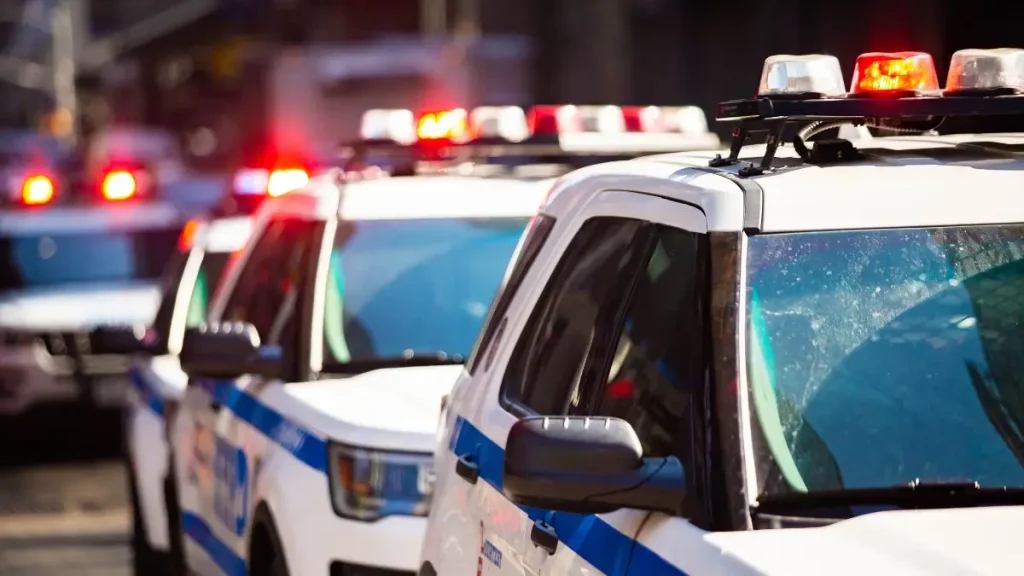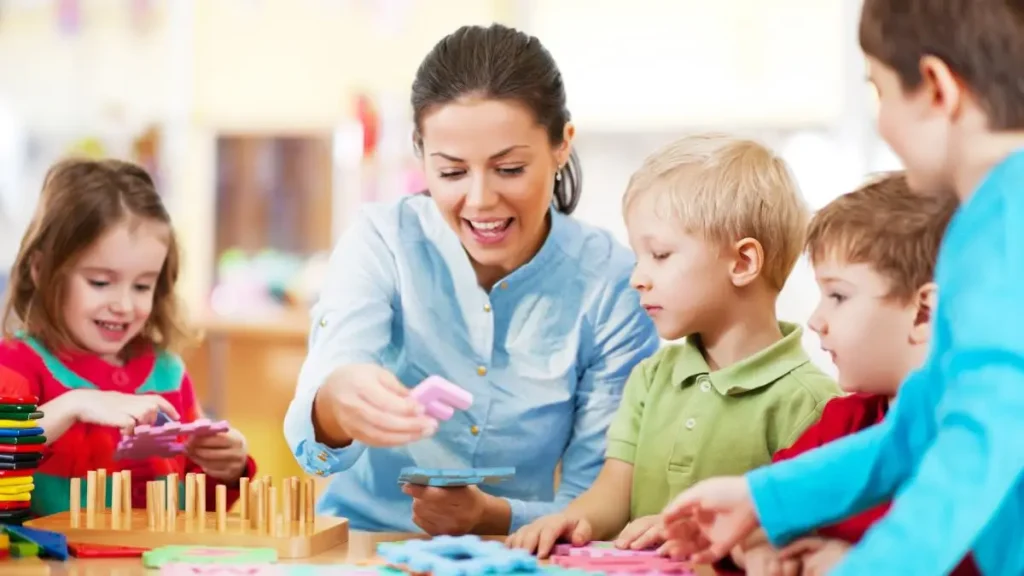Detroit Toddler Hit by Stray Bullet Inside Home on East Side
A two-year-old boy was sitting in his living room with his family, watching fireworks just like any other kid might on the Fourth of July weekend. Then a bullet came through the wall.
That’s not an exaggeration. It happened around midnight on Detroit’s east side, near Marion Avenue and Fischer Street. Gunshots rang out from the nearby park, and within seconds, one of those bullets tore through the house and hit the toddler in the chest.
His family rushed him to the hospital, where doctors say he’s lucky to be alive. He’s got injuries to his lung, rib, and collarbone. He’s on a breathing machine, fighting hard.
Iesha Belle, the boy’s mother, didn’t hold back when speaking to local reporters. “There’s a hole through my baby’s chest,” she said. Her voice cracked in frustration and fear. She thought her son was safe. He was at home. That should’ve been enough.
This wasn’t some accident in a dangerous alley or late-night club. This was a little boy, inside his own house, during a family celebration.
Police say the bullet came from a group of teens gathered at Village Park, just a block away. They had fireworks, then a fight broke out, and someone pulled a gun. No one inside the park got hit—but the child at home did. That’s the cruel irony of stray bullets. They don’t care where they land.
Two juveniles have been taken in for questioning, but no charges yet. The investigation is still ongoing.
Let me be clear: this isn’t just about one stray bullet. It’s about how we let things get this far—how we let a park turn into a warzone while a toddler bleeds across the street.
If you’re a parent, a neighbor, or just someone who gives a damn—how would you feel if this was your block? Your kid? Your home?
Let’s talk about it. What’s the real fix here—stronger curfews, better patrols, or community pressure? Drop your thoughts below.
Where Did the Bullet Come From?
You might be wondering—how does a child get hit inside their own home?
According to CBS News Detroit, the gunfire started just one block away, at Village Park. A group of teens had gathered there to light fireworks. Nothing unusual—just noise, music, and flashes in the sky.
But then, something changed. A fight broke out, and someone pulled a gun. They weren’t aiming at the house. They weren’t even aiming at the child. But one of those bullets went flying, straight toward a nearby home. Six bullets hit the house. One of them struck the two-year-old.
He was inside with his family. No one outside saw it coming.
If you’ve got kids at home, you already know how fast things can turn. One second it’s celebration, the next it’s chaos. And when a bullet travels that far, you can’t “just keep them inside” and think they’ll be safe. That’s what scares me most.
So ask yourself: if fireworks night in your neighborhood ends with gunfire, where do you feel safe anymore?
What the Police—and the City—Are Saying?

The outrage wasn’t just coming from parents. Even Detroit police are fed up.
As reported by the Detroit Free Press, Police Chief James White said he’s “appalled” by what happened—and he’s not letting this go. The city had already set a curfew for minors, but clearly, not enough people are following it.
Here’s the part that hit me: the police found no adult supervision among the group of teens in the park that night.
Chief White made it clear—parents are going to be held accountable moving forward. That means tickets, fines, and maybe even more. If your kid’s out late with fireworks and ends up near a gun, the city’s putting that on you.
You might be thinking, “That’s harsh.” But is it really? If a two-year-old ends up in a hospital because someone else’s kid brought a gun to a firework show, who’s responsible?
Personally, I think curfews aren’t enough on their own. But they’re a start. And maybe it’s time we all paid closer attention to where our teens are after dark—because the cost of looking away is just too high now.
Sadly, Detroit’s not alone in facing these kinds of late-night community shocks. Just recently, five people were arrested in a Hanford shooting that left neighbors shaken and questioning if their own streets were still safe.
This Isn’t the First Time a Child Got Shot in Detroit
What scares me is that this isn’t a one-off. This is part of a pattern.
Just days before this toddler was shot, another child—a four-year-old—was killed at Skinner Playfield. Same deal: park, kids, chaos, gunshots. That one also involved teens. That one also happened at night. And it didn’t make the city any safer for the next kid.
These aren’t rare freak incidents anymore. They’re becoming… expected. And that should keep you up at night.
When I read that police are investigating yet another group of teens with weapons near a community space, it makes me wonder—what’s really being done? What systems are failing so badly that little kids can’t even watch fireworks without body armor?
We’ve got to stop thinking of these as random tragedies. They’re symptoms of something bigger. And if we don’t get serious about that, the next headline will look exactly like this one. Maybe worse.
A lot of folks in my community have been talking about these shootings in local groups lately—the kind where you hear what’s really going on before the news covers it. One recent post even warned parents to avoid certain parks after dusk. Sometimes, that heads-up from a neighbor makes all the difference.
Why Fireworks Nights Are Becoming So Dangerous?
I used to love fireworks. Maybe you did too.
But let’s be honest: in some neighborhoods, fireworks night doesn’t feel fun anymore—it feels risky.
Here’s what happens. People gather. Emotions run high. Sometimes there’s drinking. Sometimes old grudges come up. And then, all it takes is one person pulling a trigger.
Stray bullets aren’t just accidents—they’re deadly. Even if a gun’s fired into the air, that bullet has to land somewhere. In some cases, bullets falling back down can hit speeds up to 250 feet per second—enough to pierce skin, bone, even walls.
You might think, “That’s just bad luck.” But I don’t buy that. Because we know this happens. We know guns and fireworks don’t mix. And yet, every year, it’s the same story.
So yeah, fireworks are fun. But not if they come with gunshots. Not if your child ends the night in surgery.
We’ve seen this kind of emotional wreckage before, like when Fort Worth residents were dealing with a string of apartment burglaries that left families too scared to sleep at night.
What You Can Do to Keep Your Kids Safe?

Look—I don’t want to just scare you. I want to give you something useful. Because we can’t fix everything overnight, but we can take small steps right now.
Here’s what I’m doing—and maybe you should too:
- Know where your kids are during holidays, especially after dark
- Avoid parks that don’t have lights or police presence at night
- If you hear fireworks turning into fights, leave early
- Talk to other parents in your neighborhood—don’t assume everyone else is watching
- Support local patrols or community watches—they really do help when used right
- If you see something off, report it anonymously (Crime Stoppers, 1-800-SPEAK-UP)
I know it’s not fair. You shouldn’t have to think like this just to stay safe in your own home. But here we are.
And until things truly change, keeping our kids safe might mean being more alert, more connected, and a little less trusting that “it won’t happen to me.”
And it’s not just about public parks—home invasions like this one in Nevada show how quickly things can spiral even inside private spaces.
What Happens Next in the Investigation?
Right now, two juveniles have been detained, but no charges have been filed yet. Police are still gathering evidence, reviewing surveillance, and trying to trace exactly who fired the shot that hit the child.
If you’ve ever seen how long these cases take, you know justice doesn’t always move fast. But in this case, the community’s watching—and so is the city leadership.
Detroit police are asking anyone with information to come forward. Even small tips could help. You can stay anonymous by calling 1-800-SPEAK-UP.
And if you know something, don’t stay silent. Because if we don’t speak up for this two-year-old, who will?
The Emotional Fallout—and the Part No One Talks About
Let’s be real. Everyone talks about the shooting. The news covers the victim. But what happens after the cameras leave?
That family’s going to live with this for the rest of their lives.
The mother will never sit in that living room the same way again.
The child may grow up with trauma he doesn’t even remember forming.
And the neighborhood? It doesn’t just forget either. When gunshots hit homes, it rewires how people live. Trust erodes. Fear sets in. Kids stop going outside. Parents start pulling away. That ripple effect is real.
So no—it’s not just about one bullet. It’s about everything it breaks after.
Final Thoughts
If you’ve read this far, you probably care. And that matters more than you think.
Because change isn’t always about big speeches or political pressure. Sometimes, it starts with neighbors texting each other before dark. Parents checking in with their kids. Strangers refusing to ignore what looks wrong.
That two-year-old deserved a quiet night watching fireworks—not a bullet in the chest. And the next child will too. Let’s make sure they get it.
What’s one thing you can do this week to make your block feel a little safer?
Start there. That’s where real change lives.
If this kind of issue worries you, you might also want to read more this types of stories, then you can check our website Build Like New.
Disclaimer: This article is based on verified news reports and publicly available statements as of July 8, 2025. The investigation is ongoing, and details may evolve with time. Please refer to local law enforcement or official sources for the most current updates.


